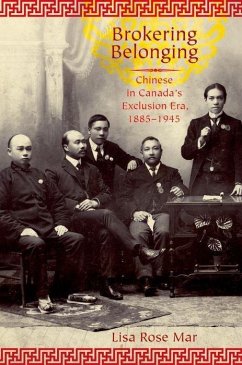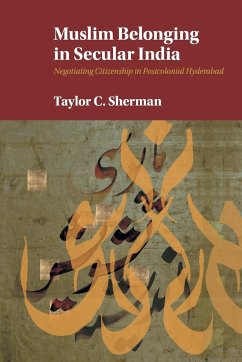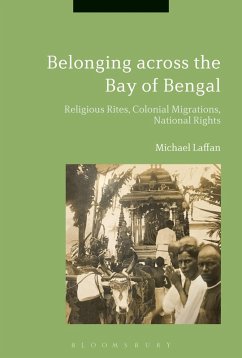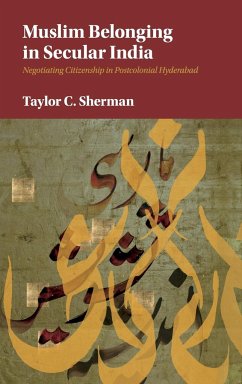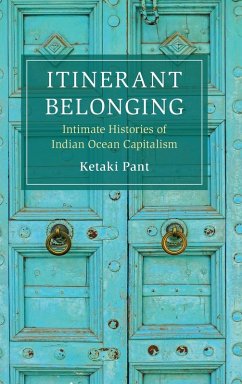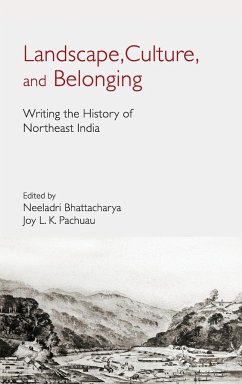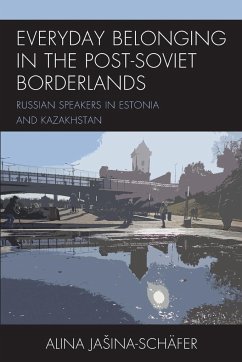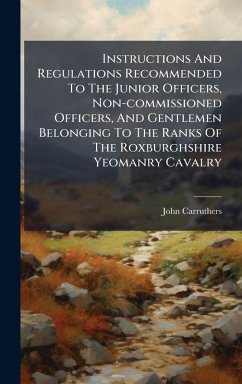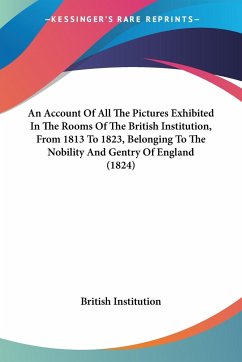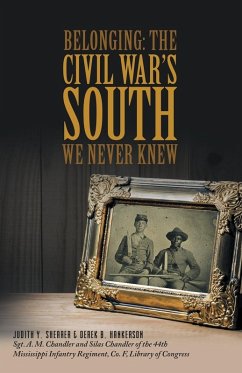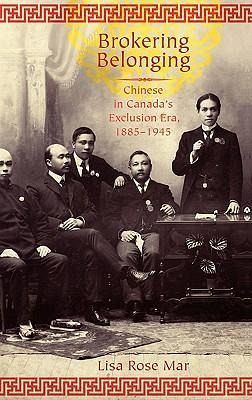
Brokering Belonging
Chinese in Canada's Exclusion Era, 1885-1945
Versandkostenfrei!
Versandfertig in 1-2 Wochen
137,99 €
inkl. MwSt.
Weitere Ausgaben:

PAYBACK Punkte
69 °P sammeln!
Brokering Belonging traces several generations of Chinese "brokers," ethnic leaders who acted as intermediaries between the Chinese and Anglo worlds of Canada. At the time, most Chinese could not vote and many were illegal immigrants, so brokers played informal but necessary roles as representatives to the larger society. Brokers' work reveals the changing boundaries between Chinese and Anglo worlds, and how tensions among Chinese shaped them. By reinserting Chinese back into mainstream politics, Brokering Belonging alters common understandings of how legally "alien" groups' helped create modern immigrant nations. Over several generations, brokers deeply embedded Chinese immigrants in the larger Canadian, U.S. and Chinese politics of their time. On the 19th century Western frontier, bilingual Chinese businessmen competed with each other to represent their community. By the early 1920s, a new generation of brokers based in social movements challenged traditional brokers, shifting the power dynamic within the Chinese community. During the Second World War, social movement protests helped reconfigure brokerage relations. By 1947, Chinese had won voting rights in British Columbia and repeal of Canada's Chinese exclusion act. The history of brokers' work adds new transnational dimensions to many central topics in Canadian, U.S., and Chinese Diaspora history: immigration policy-making, party machines, law, migration, unions, civil rights movements, and the founding of immigration studies. Indeed, Chinese brokers' dealings with researchers from the Chicago School of Sociology had an enduring impact on immigrant scholarship, including beliefs that Asians were a diligent, patient "model minority." Based on new Chinese language evidence, this book recounts history from the "middle,' a view that is neither bottom up nor top down. Through brokerage, Chinese wielded considerable influence, navigating a period of anti-Asian sentiment and exclusion throughout society. Consequently, Chinese immigrants became significant players in race relations, influencing policies that affected all Canadians and Americans.




